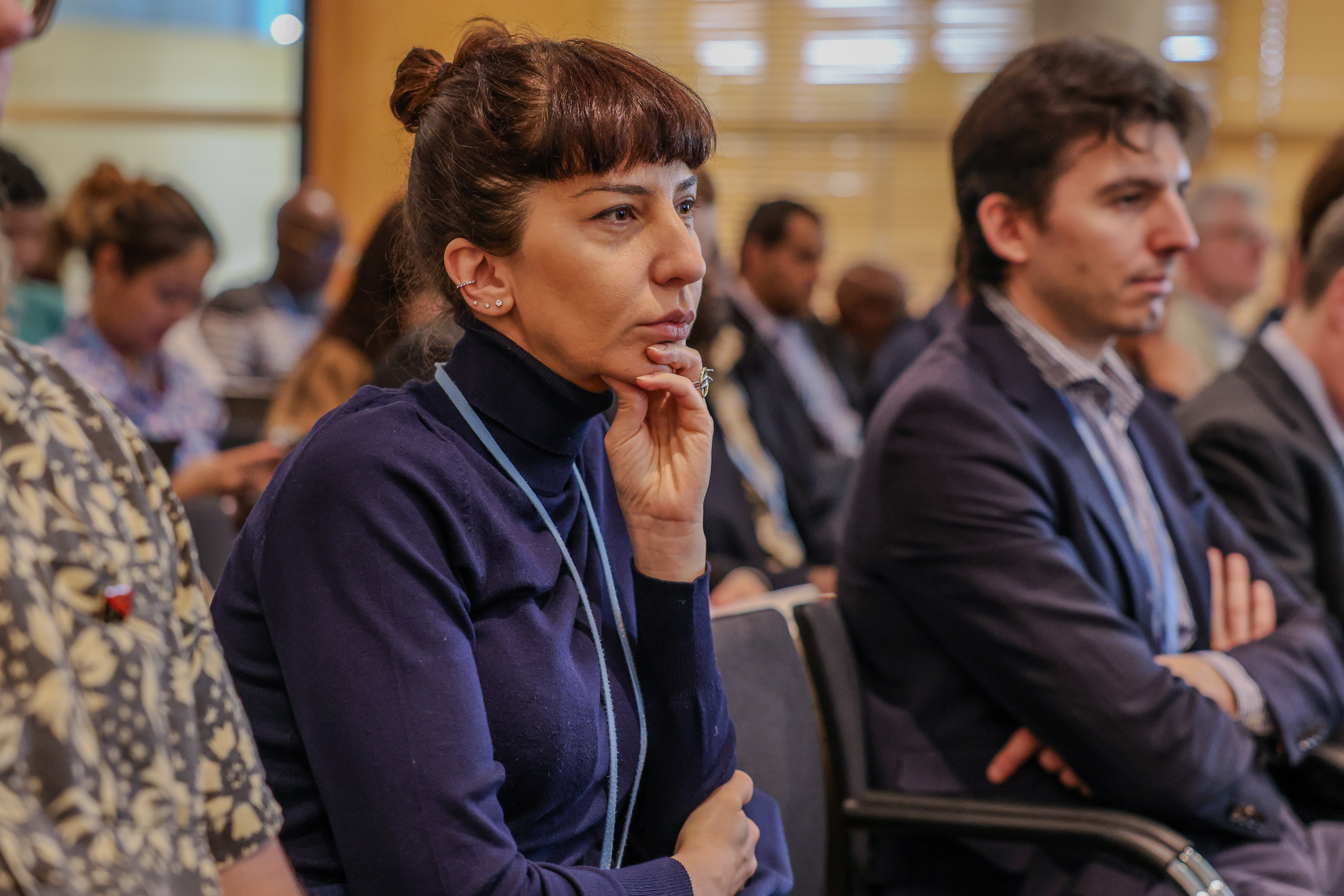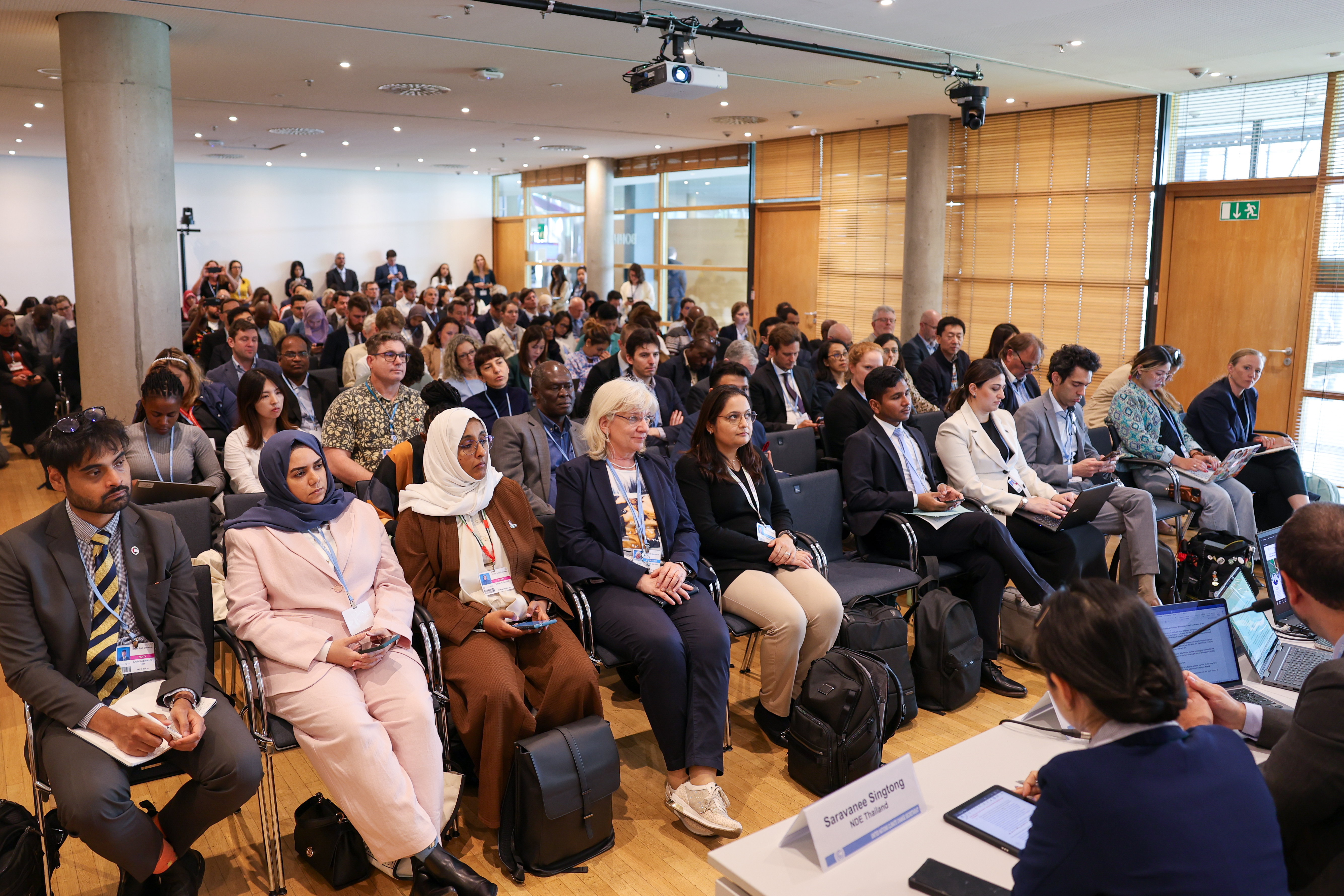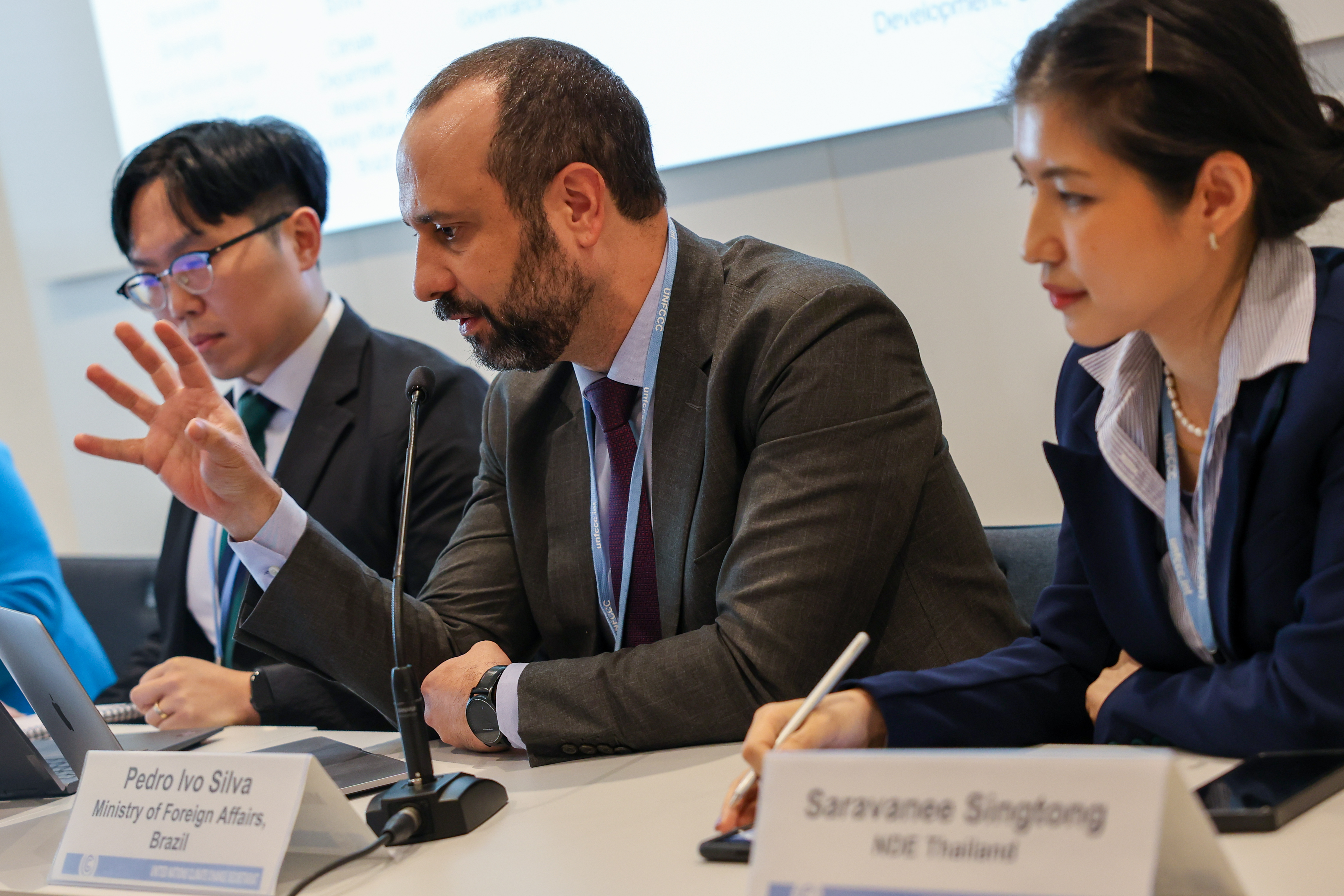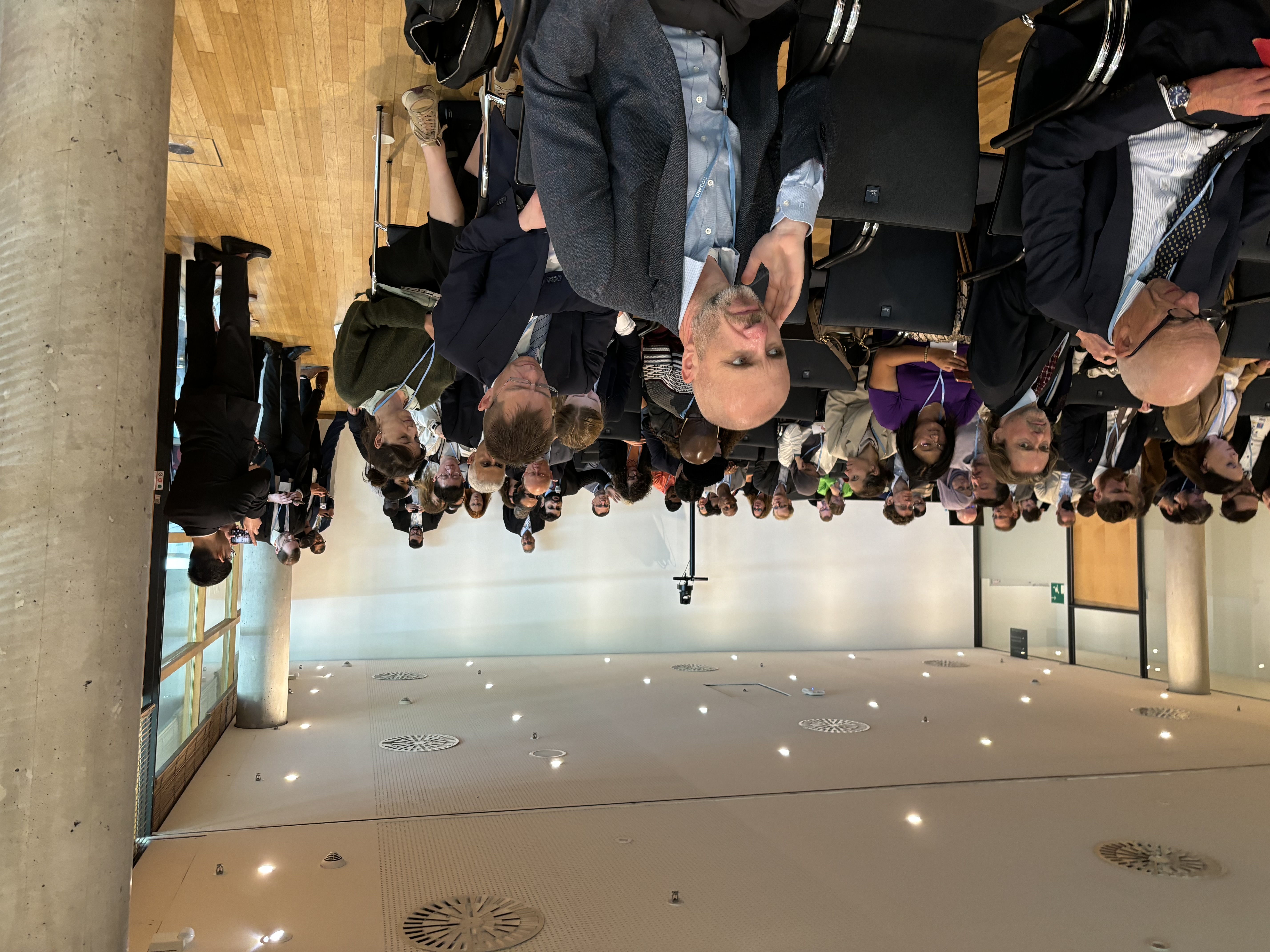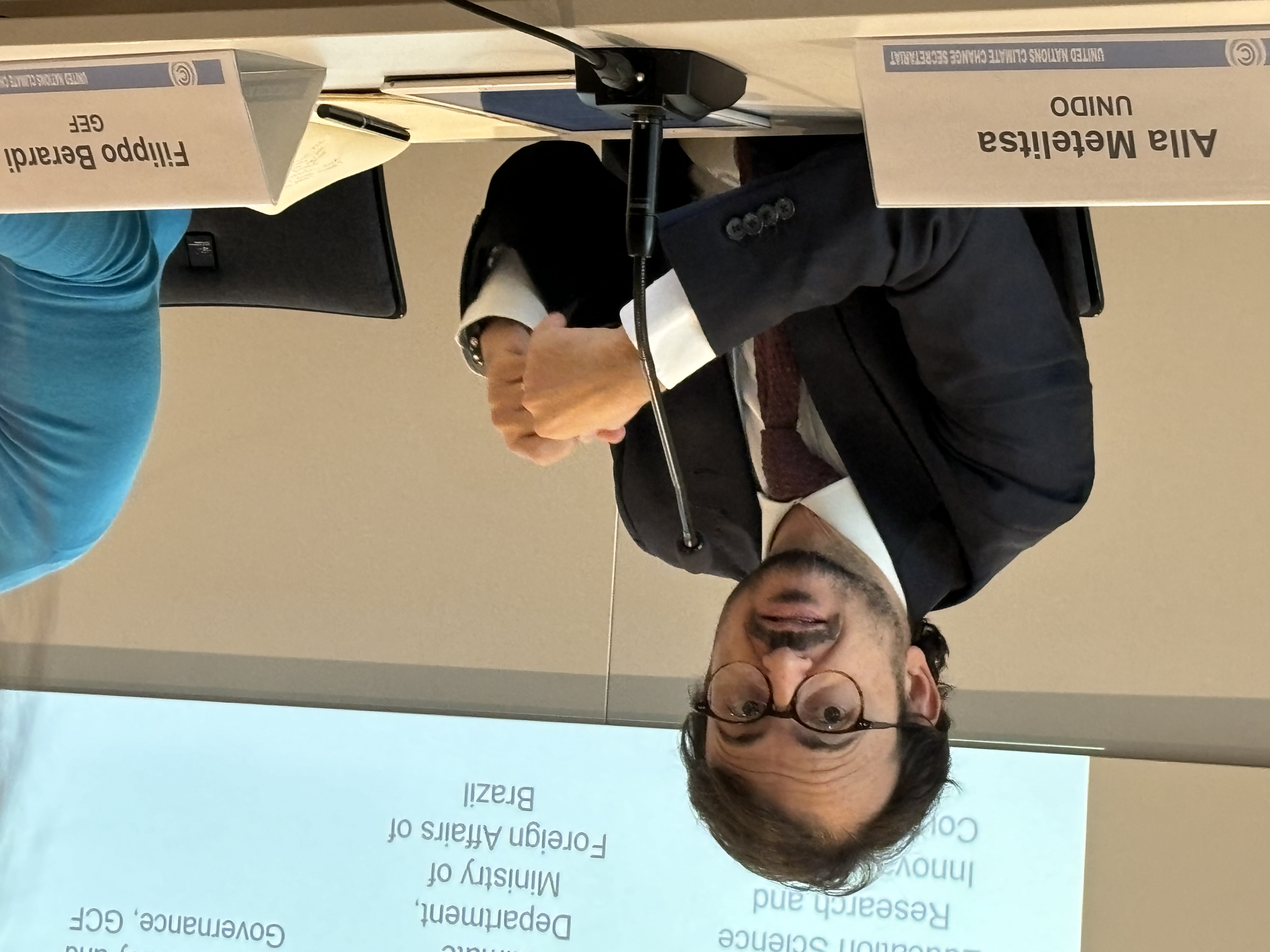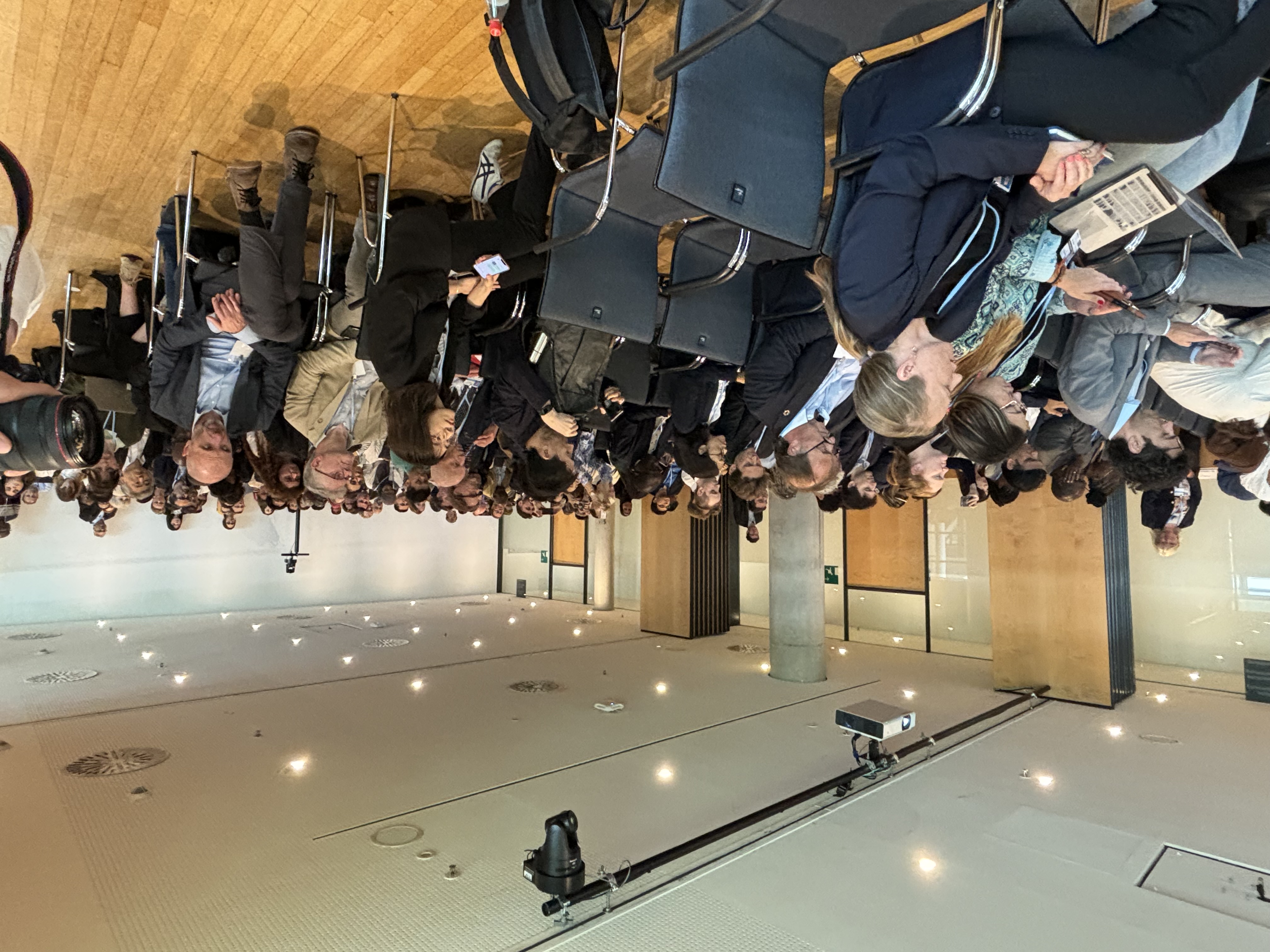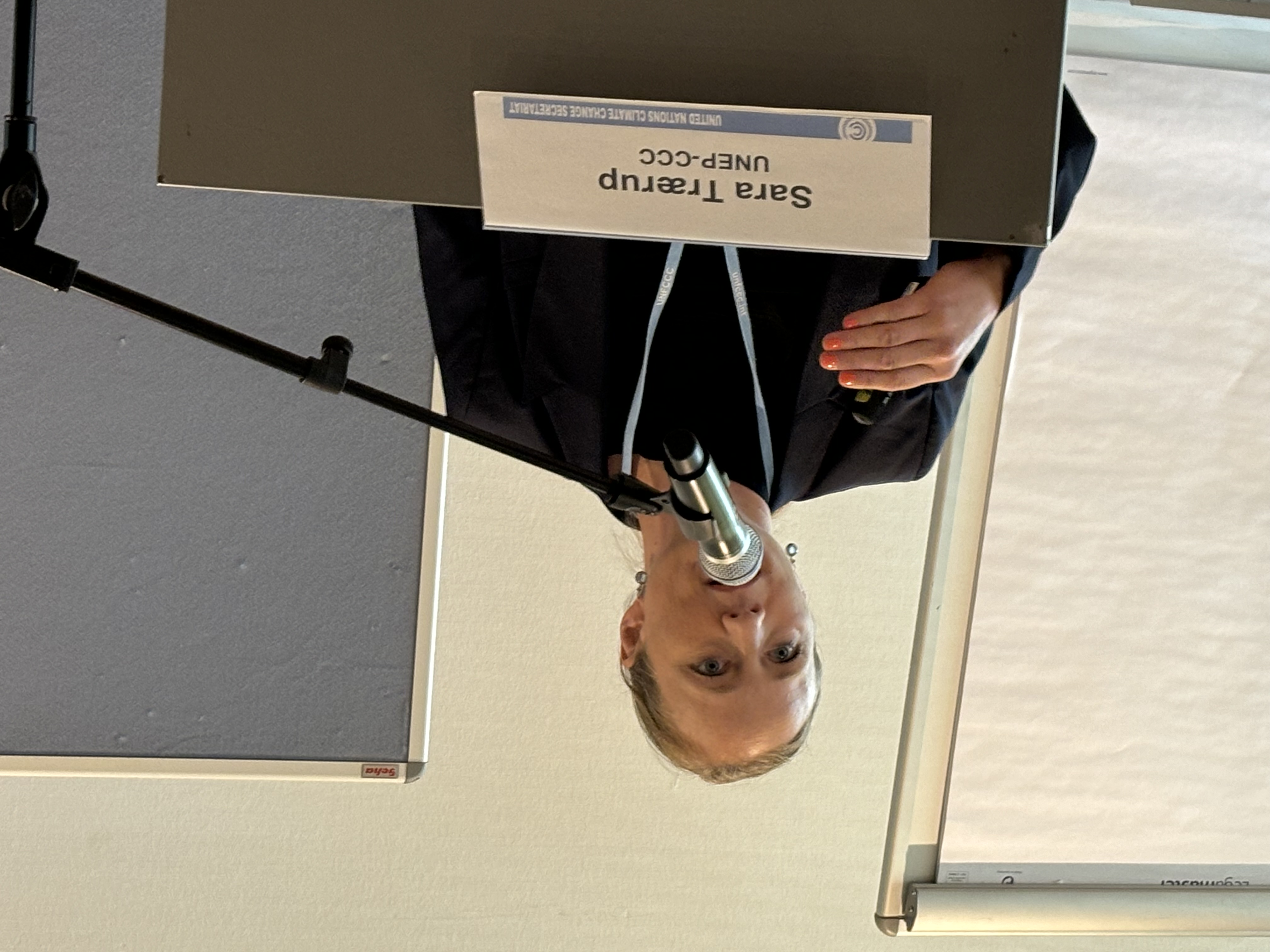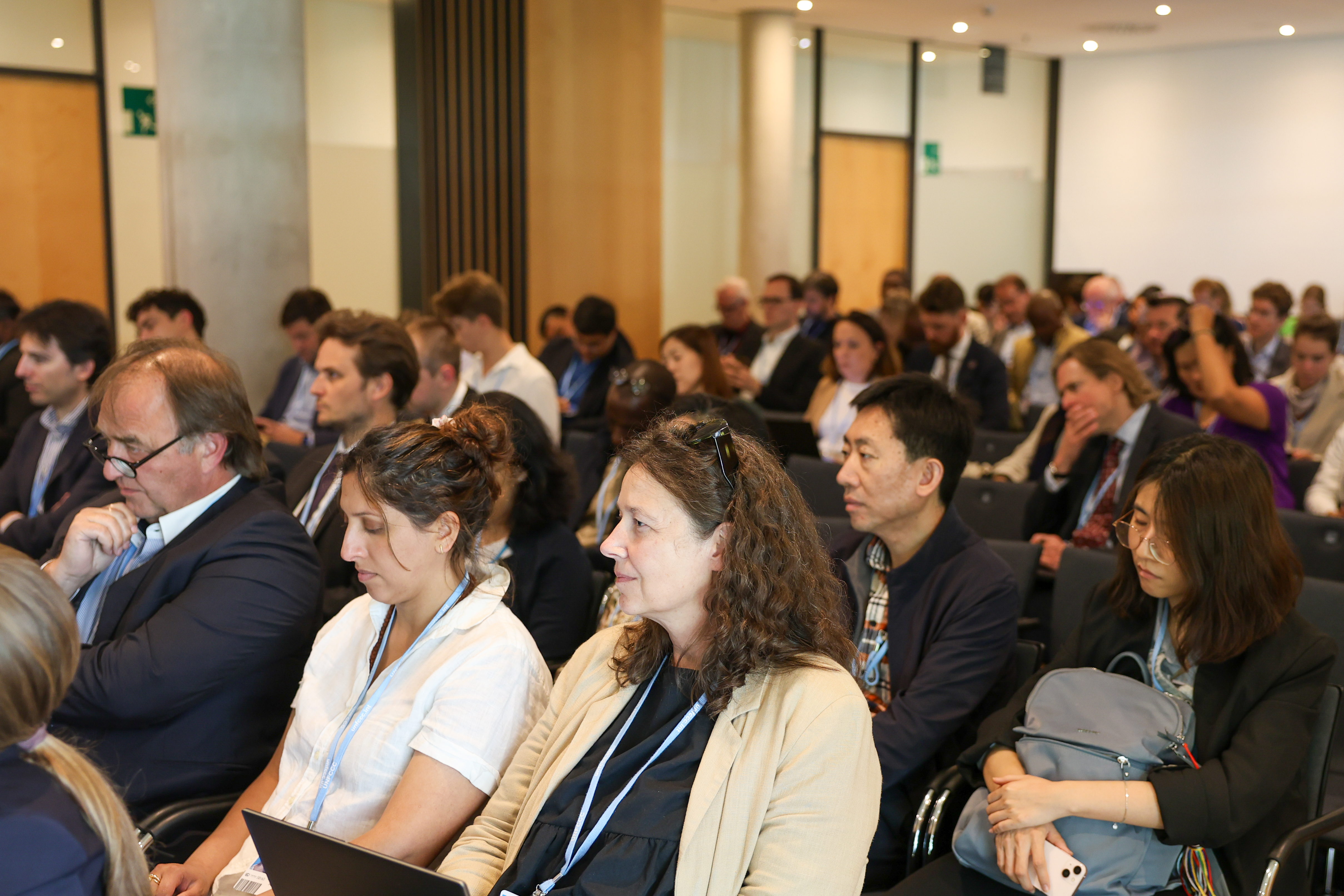Yesterday, climate technologies and how they can leverage more ambitious climate action was in focus at the Bonn Climate Change Conference 2024, also known as SB 60.
In a fully packed room, the UNFCCC side event Making NDCs 3.0 Ambitious and Investment-Ready through Technology Action Plans explored how the Technology Needs Assessments (TNAs) and the Technology Actions Plans (TAPs) can elevate Nationally Determined Contributions (NDCs) to be more ambitious and investment-ready.
James Grabert of the UNFCCC Secretariat set the stage by emphasizing the importance of limiting the global average temperature increase to 1.5°C and the need for countries to submit ambitious and investment-ready NDCs by 2025. He underlined that new NDCs must serve as blueprints for unlocking the necessary finances to drive ground-level implementation and must be grounded in long-term sustainable planning.
The event highlighted the crucial role of technology in climate action, particularly through TNAs and TAPs. These tools are instrumental in informing NDC development and implementation. The discussion covered the global state of TNAs and TAPs, the challenges countries face in implementing technologies, and how these assessments can enhance the ambition and investment-readiness of NDCs.
Experiences of Thailand and Azerbaijan with the TNA
Aysel Rzayeva from the COP 29 Incoming Presidency discussed Azerbaijan’s experience with TNAs. Azerbaijan conducted its initial TNA in 2013, coordinated by the Ministry of Ecology and Natural Resources. This assessment identified agriculture and the water sector as the most vulnerable sectors to climate change. These efforts were a significant milestone towards preparing Azerbaijan’s first NDC. With the development of new generational NDCs, Azerbaijan will revise its TNA and TAPs as one of the 17 countries initiating the fifth round of TNAs in 2024 through the UNEP Copenhagen Climate Centre implemented TNA project.
Saravanee Singtong, Director of Sustainability Policy Division, Office of National Higher Education Science Research and Innovation Policy Council (NXPO) and NDE Thailand, shared Thailand’s experience with TNAs. Thailand completed its first TNA over 20 years ago and is now revising it along with Azerbaijan in the project’s fifth round. The first TNA in Thailand played a central role in diversifying climate technology and informing national plans, including the climate change master plan and Thailand’s Intended Nationally Determined Contribution.
Information from the initial TNA is still relevant in current national plans, such as analysis on technologies like carbon capture storage and smart grid technologies.
Thailand’s approach involves engaging stakeholders and strategic thinking in rolling out the TNA and TAP reports. National planning and budget allocation ensures that TNAs are not just plans but are integrated into national policies.
Sara Trærup, Head of Section Technology, Transitions and System Innovation at UNEP-Copenhagen Climate Centre, and Head of the TNA Project provided an update on the global state of play on TNAs and TAPs. Through several cases, she highlighted the TNA process, how it leads to the concise plans for implementing priority technology, and how the energy and water sectors are highly prioritized for mitigation and adaptation repsectively.
She also highlighted, that with its fifth round about the kick off, the TNA project has supported more than 100 countries determine their technology priorities for mitigating and adapting to climate change.
Leveraging TNAs and TAPs for NDC Implementation and Planning
The side event further discussed how updated TAPs can make NDCs more ambitious and investment-ready from both policy and implementation perspectives. TNAs and TAPs provide baseline information and opportunities for countries to integrate and assess country-specific technological needs.
Pedro Ivo Silva, Coordinator for Scientific and Technological Affairs in the Climate Department of the Ministry of Foreign Affairs of Brazil highlighted the mutually reinforcing relationship between NDCs and TAPs. The country’s TNA on mitigation addresses technologies in land use, land use change, and forestry, reflecting Brazil’s major emission sources. However, a significant challenge lies in accessing finance to implement the identified technologies, emphasizing the need to focus on the implementation part and invest funds towards realizing technology plans to reach NDC targets
This important point of ensuring funds for crucial technology was also part of the ongoing discussions in the SB 60 about reinforcing the linkages between technology mechanism and the financial mechanism.
Enhancing the TNA and TAP Process
Hansol Park from the Green Climate Fund’s (GCF) Climate Policy and Governance stressed that technologies should play a pivotal role in NDCs. He nited that even though the numbers look promising, the timeline and lag between TNA preparation and implementation need attention. It’s crucial to involve financial institutions early and align TAPs and NDCs with the same language to explain their added value. Engaging end-users early in the process is essential for successful technology implementation.
Filippo Berardi, Senior Climate Change Specialist at the Global Environment Facility (GEF), emphasized that TNAs, TAPs, and NDCs are designed to reinforce each other. Evaluations of the third round of TNAs show clear linkages between TNAs and NDCs. The upcoming fifths round, with 17 new countries, shows many revising their TNAs, demonstrating strong commitment to the TNA process.
Berardi highlighted the need to involve the private sector early, as they will play a crucial role in implementation and uptake and suggested to engage financial institutions from the start of the TNA process to ensure successful outcomes.
Alla Metelitsa, Chief at the Climate Policy and Partnerships Division at UNIDO emphasized the importance of integrating the circular economy into the NDCs. She highlighted the collaborative efforts with the Climate Technology Centre and Network (CTCN) involving 18 countries moving from a linear to a circular economy, aligning economic activities more closely with nature.
Technology and planning crucial for ambition and investments
Experiences from Thailand, Azerbaijan, and Brazil highlighted the benefits and challenges of using the TNAs to integrate technology into national climate plans. The discussions emphasized the need for strategic planning, stakeholder engagement, and securing financing to ensure successful implementation of technology plans and achieve climate goals.
Thibyan Ibrahim, chair of the UNFCCC Technology Executive Committee and Fred Onduri, Chair of the CTCN Advisory Board, provided closing remarks underscoring the importance of TNAs, TAPs and CTCN in enhancing NDCs’ ambition and investment-readiness.

